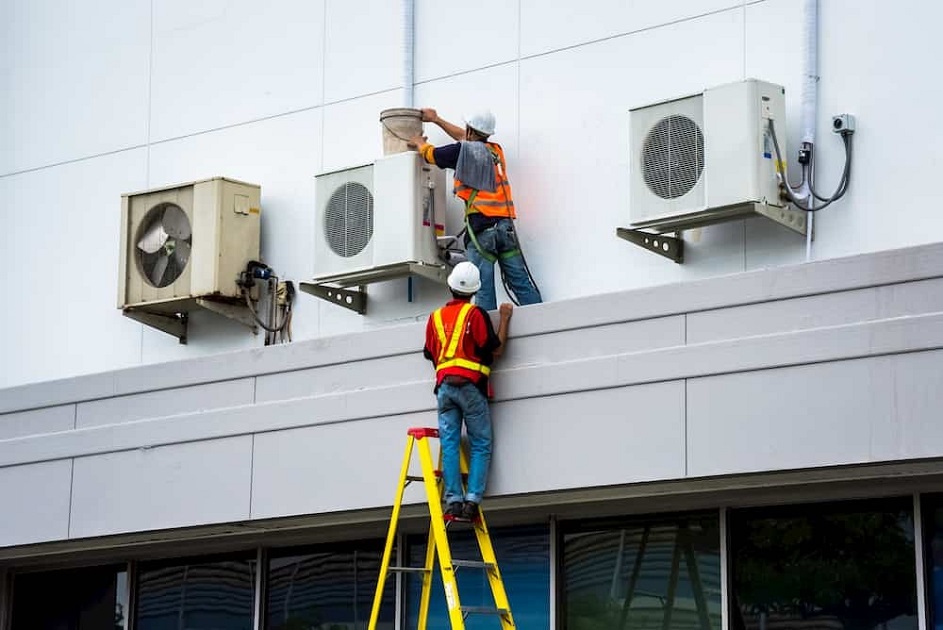As scorching heat waves grip nationwide, the necessity of air conditioning has escalated from luxury to essential. However, amidst the surge in AC usage, concerns regarding safety have emerged, fueled by alarming reports of AC explosions resulting in casualties. In the wake of these incidents, raising awareness about the potential risks becomes imperative to safeguard lives.
Causes of AC Explosions:
Understanding the root causes behind catastrophic accidents like AC explosions sheds light on preventive measures. Here are some primary factors contributing to AC explosions:
Improper Maintenance: Neglected maintenance and irregular cleaning pave the path for AC malfunctions. Accumulated dirt can impede AC operations, leading to overheating and an increased risk of explosion.
Refrigerant Leakage: ACs utilize refrigerant gas under high pressure for cooling. Leaks in the refrigerant system can create hazardous situations, especially if the leaked gas is flammable, posing an explosion risk.
Compressor Issues: The compressor, a crucial component of ACs, contains small pipes prone to jamming due to gas bubbles or accumulated lubricating oil, especially after prolonged periods of inactivity. Such jams can precipitate hazardous conditions.
Improper Usage: Failure to match AC capacity with room size results in prolonged operation and overheating. Additionally, low-quality ACs may harbor faulty fan mechanisms, wiring, or electrical systems, escalating the likelihood of technical errors and fires.
Pressure Limits: Mechanical engineers emphasize the importance of adhering to pressure limits within AC compressors. Exceeding these limits can trigger explosions due to heightened gas pressure levels.
Friction and Combustible Materials: The friction generated during an AC explosion can ignite nearby combustible materials, exacerbating the severity of the incident.
Electrical Overload: Prolonged AC usage strains electrical appliances, increasing the risk of overheating and potential explosions. Voltage fluctuations can also induce malfunctions in AC electrical components, precipitating safety hazards.
Preventive Measures to Avert AC Explosions

Regular Maintenance: Ensuring the proper upkeep of your AC system is paramount in averting potential explosions. Regular cleaning and maintenance checks by certified technicians can swiftly identify and rectify any underlying issues.
Scheduled Cleanings: Regularly scheduled cleanings, coupled with professional inspections, are essential for maintaining optimal AC functionality and safety standards.
Refrigerant Leak Detectors: Installing refrigerant leak detectors adds an extra layer of protection by promptly alerting occupants to any potential leaks, thereby mitigating the risk of hazardous situations.
Upgrade to Modern Models: Consider upgrading older AC units to newer models equipped with advanced safety features, including built-in leak detectors. However, ensure proper installation and maintenance of these units to maximize efficacy.
Prudent Usage Practices: Exercise caution when operating your AC system, avoiding prolonged usage periods, especially in unoccupied spaces. This not only conserves energy but also reduces the strain on the AC unit, minimizing the risk of malfunctions or explosions.
Prompt Response to Abnormalities: Any unusual odors or noises emanating from the AC unit should prompt immediate shutdown and professional inspection to preempt potential hazards.
Avoiding Extended Exposure: Limit the duration of open exposure for your AC unit to prevent unnecessary strain and potential damage to its components.
Regular Servicing: Engage the services of reputable mechanics for routine maintenance and servicing of your AC system, ensuring optimal performance and longevity while mitigating the risk of catastrophic failures.
















-20240520103208.jpg)



-20240520032348.jpg)















